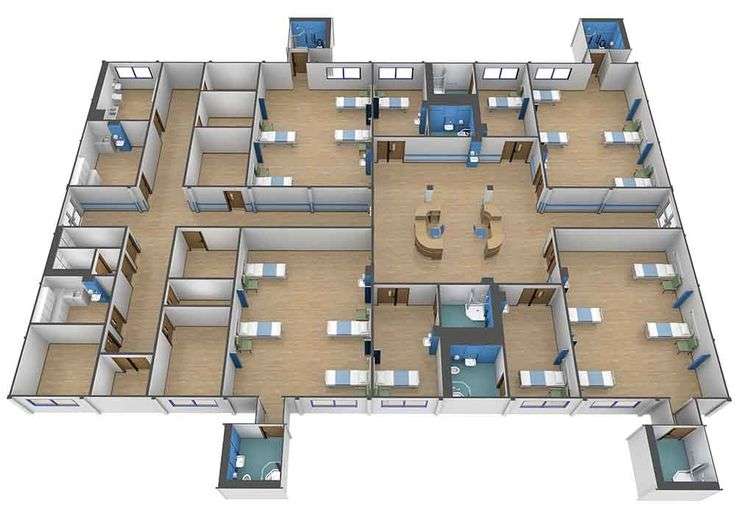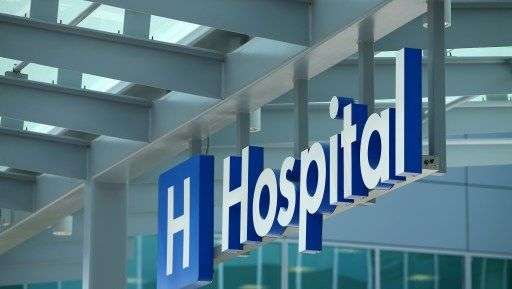
Healing Spaces in hospital
August 27, 2021
Efficient Hospital Management
August 31, 2021Many first-time practitioner-entrepreneurs are apprehensive before they set up their institute because they find it very difficult to wade through the mire of legal and administrative regulations. Setting up a healthcare institute, whether big or small involves many procedures, sub-procedures and is a complex mix of getting permissions and certifications and allowances.
These are mandatory assessments made by the government or other regulatory bodies to assure that the service provided by your healthcare unit adheres to stringent quality benchmarks.
The terms like licenses, accreditation, and credential may all seem interchangeable…but they are not. You have to know their meaning and their implications before you set foot on the path of healthcare practice.
Licensing is the formal recognition by a regulatory body that a healthcare set-up has the capability in terms of infrastructure and expertise of employed professionals to run their operations. The process of obtaining a license is referred to as “licensure” and is mandatory for practicing any medical specialty. Licensing is granted with consideration to the guidelines provided by different government regulatory bodies. If any doctor associated with a healthcare set-up does not have an updated license, legal action can be taken. Licensing is compulsory.

Credential validates that a doctor has the required qualification and experience to practice. Certification recognizes the core skills possessed by a practitioner and also adds credibility to your healthcare practice. Certification is not mandatory…it is optional. Certification involves periodic retests and participation in regular training.
Other than the mandatory health care license and optional board certifications, healthcare practices need another legislation known as an accreditation.

Accreditation is a review that allows healthcare practices to demonstrate their ability to meet regulatory requirements and medical standards set by a recognized organization. Recognition by an independent professional organization agency that a healthcare entity has met predetermined benchmark of healthcare standards. Accreditation adds credibility to your healthcare unit and gives your clientele the message that your facility has participated in a grueling examination and emerged victorious. This builds confidence and trust of the patients and referring doctors. It enhances the brand image of your set-up and increases footfall and profitability.
As a maiden entrepreneur, it is better that you understand all the nitty gritty aspects of these processes. Be informed and aware about all the licensure and accreditation application processing requirements
Some licenses or permissions that you should be aware of
- Land/ space permits
You have to take permission to use the site for healthcare unit construction from the local government.
For this, you may need documents, such as the land title deed, building permit, design plan, no objection certificate and your tax details needs to be procured
- Water and Electricity Certificates

The local electric supply board issues a certificate clearing your need for more electricity, especially if your setup is a big hospital. The local authority certifies your water requirements.
- Waste control issues Sewage waste and Sanitation Certificates

Most set-ups like big hospitals must have a clearance from the waste and sanitation departments of the government.
- Fire Safety Approval
The safety of the patients and employees is a foremost priority. Guarding against the hazard of fire is a must and has to be taken into consideration tight from the planning.
- NOC
If you are starting your practice in a society, the NOC from the society managing committee is also needed .
Thus, to summarize, the conventions like licensing, credentialization, accreditation are all part of the necessary protocol that you have to navigate in before you set sail to your ship of medical practice. If this is your maiden attempt at business, you may feel lost in this complicated maze of technicalities.
If you feel that you do not have time to address this myriad web of mandatory affairs, you should take the help of a professional consultancy firm to make things easy and orderly for you. Since they have both expertise and experience in this arena, they can reduce your time and efforts as well as your stress so that you can focus on doing what you are passionate about … providing quality healthcare.
If you are looking for a reliable Hospital management consultancy, get in touch with Hospertz Health Consultancy today.
Dr. Vishal Jadhav
hospertz@gmail.com
+91 9820833149 / 9867712705



